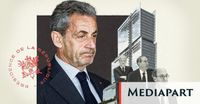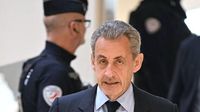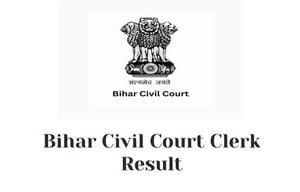On Thursday, March 27, 2025, the Paris National Financial Prosecutor's Office (PNF) requested a historic seven-year prison sentence and a fine of 300,000 euros for former French President Nicolas Sarkozy. This request comes amid serious allegations surrounding the financing of his 2007 presidential campaign, which prosecutors claim was funded through a corrupt pact with the late Libyan dictator Muammar Gaddafi.
The PNF's requisitions, described as unprecedented in the context of French political history, also included a five-year ineligibility period, effectively barring Sarkozy from holding public office. Prosecutors asserted that Sarkozy was the "true decision-maker and instigator" behind a corruption scheme that they characterized as "inconceivable, unheard of, and indecent."
During a two-and-a-half-day presentation, prosecutors painted a grim picture of Sarkozy's actions, emphasizing his "frantic quest for financing" driven by a "devouring political ambition." This case marks Sarkozy's fifth trial in five years, a series of legal battles that have included previous convictions for corruption and illegal campaign financing.
"Behind the image of a public man, a state minister, and a president, lies the silhouette of a man driven by insatiable personal ambition, ready to sacrifice essential values like integrity, honesty, and uprightness on the altar of power," stated prosecutor Quentin Dandoy.
The accusations against Sarkozy include corruption, concealment of embezzlement of public funds, illegal campaign financing, and association with criminals. The prosecutors have argued that the severity of the charges warrants significant penalties to protect society and restore social balance.
Sarkozy, who appeared visibly tense during the proceedings, denounced the PNF's demands as excessive. On social media platform X, he referred to the requisitions as an "ideological postulate" and described the accusations as false and violent, claiming they aimed to obscure the weakness of the evidence against him.
In addition to Sarkozy, the PNF has sought sentences for several of his close associates. Claude Guéant, Sarkozy's former chief of staff, faces a request for six years in prison and a fine of 100,000 euros. Brice Hortefeux, another former aide, has been targeted with a three-year prison sentence and a fine of 150,000 euros. Eric Woerth, the treasurer of Sarkozy's campaign, is facing a one-year prison sentence and a fine of 3,750 euros.
The prosecutors have suggested that Guéant and Hortefeux were integral to executing the corrupt pact, which allegedly involved promises of diplomatic, legal, and economic favors in return for campaign financing from Libya. The PNF has also highlighted evidence of cash flows that they claim financed Sarkozy's successful campaign.
During the trial, Sarkozy's defense team has maintained that they will prove his innocence. In an interview with Le Parisien, Sarkozy stated, "I will demonstrate my innocence; it will take as long as necessary, but we will get there." His legal team is set to present their arguments on April 8, 2025, the final day of the trial.
The PNF's rigorous approach has drawn attention not only for its focus on high-profile figures but also for the implications it holds for the integrity of political financing in France. The case has sparked discussions about the need for greater transparency and accountability among public officials.
As the proceedings continue, the courtroom atmosphere has been tense, with Sarkozy occasionally showing signs of agitation. He has been seen taking notes and reacting to the prosecutors' statements, while his wife, Carla Bruni-Sarkozy, has been a supportive presence in the audience.
In a broader context, this trial is a reflection of ongoing concerns regarding corruption in politics, especially in light of Sarkozy's previous legal troubles, which include a one-year prison sentence for corruption and influence peddling in the "Bismuth" affair, and a six-month sentence for illegal financing of his 2012 presidential campaign in the "Bygmalion" case.
Legal experts are closely monitoring the outcome of this trial, as it may set a precedent for how political corruption is addressed in France. The PNF has emphasized that only firm prison sentences and fines can ensure the protection of society and the restoration of public trust in political institutions.
As the trial nears its conclusion, all eyes will be on the court's decision, which could have far-reaching implications not only for Sarkozy but also for the future of political accountability in France.








